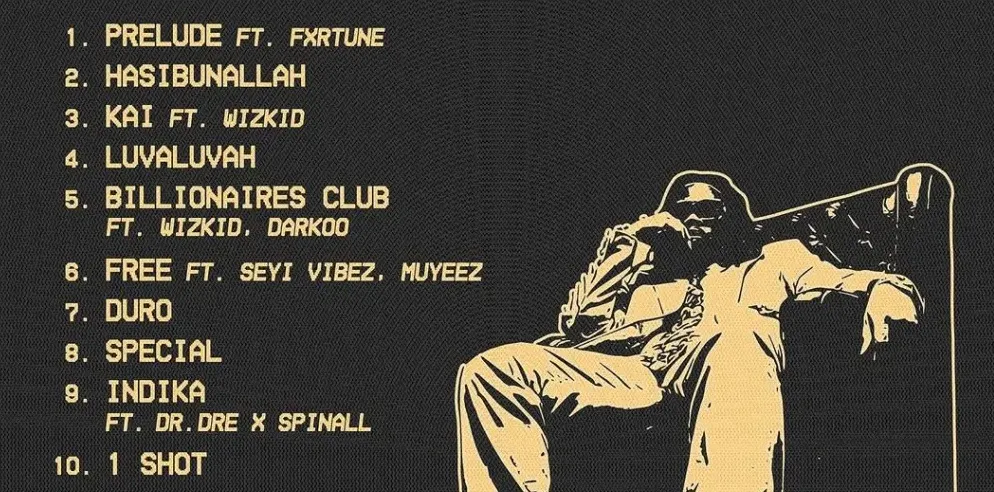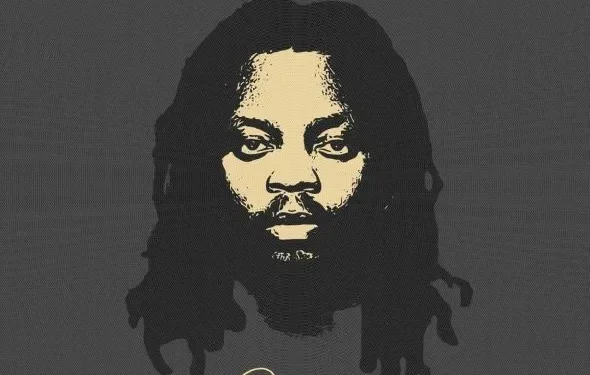There comes a time when even the most brilliant artists grow too comfortable in their greatness. For Olamide Adedeji — Nigeria’s most consistent rapper and cultural force — that time might have arrived.
His eleventh studio album, Olamide, should have been a defining moment, a self-titled declaration of mastery. Instead, it plays like a victory lap stretched too long — elegant, polished, and occasionally dull.
A Self-Titled Statement That Says Too Little
When artists name an album after themselves, it’s often symbolic — a message that they’ve reached full artistic clarity. But Olamide feels less like a revelation and more like reflection. It’s an album that knows exactly what it wants to sound like, yet lacks the urgency to make you feel it.

From the first track, Prelude, featuring Fxrtune, Olamide sets the tone with calm piano chords and reflective lyrics. It’s poised and mature, but also predictable. The transition into Hasibunallah feels seamless — perhaps too seamless — as both tracks blend into one long mood. The production is refined, the message spiritual, but the energy flat.
Mastery Without Motion
There’s no denying Olamide’s lyrical intelligence. His pen is still sharp, his flow still effortless. But on this record, the hunger that once drove him seems replaced by quiet satisfaction. Free and Billionaires Club show flashes of reflection and wealth wisdom, but they lack the bite that made classics like Eyan Mayweather and Baddest Guy Ever Liveth unforgettable.
On Free, Muyeez’s soulful hook — “I’ve been chasing my paper” — gives the song some heart, but Olamide’s verses never rise above contemplation. Billionaires Club has all the elements of a hit — a Wizkid feature, silky beat, and luxury-laced production — but the chemistry between both stars feels hollow. Two legends, yes, but neither one sounds inspired.
The Dre Collaboration That Should Have Exploded
When news broke that Olamide had a track with Dr. Dre, fans expected a cultural explosion — a bridge between Lagos grit and Compton cool. Indika should have been that bridge. Instead, it’s a quiet stroll. The production is mellow, the groove soft, and the verses almost too polite. It’s the album’s biggest missed opportunity — a moment that could’ve made history but settles for background ambience.
Emotion Without Energy
To his credit, Olamide lets listeners into his softer side. Duro and Luvaluvah find him in a reflective mood, exploring heartbreak, loyalty, and self-awareness. The emotions are genuine, but the delivery is subdued. Duro in particular aches with sincerity, but the overly smooth production makes it feel distant rather than intimate.
Even when Olamide tries to lift the tempo on Hybrid and Lalakipo, the spark doesn’t catch. The beats echo his classic street sound, yet there’s a sense that he’s recycling his old magic rather than reinventing it. The only real jolt of energy comes from 1 Shot, a sharp, bouncy anthem that reminds you of Olamide’s raw charisma when he’s truly switched on.
The Problem With Perfection
Technically, Olamide is beautiful. It’s cohesive, clean, and deliberately arranged. But in chasing sonic polish, Olamide sacrifices spontaneity. Everything feels too measured, too calculated — like music built for admiration rather than connection.
It’s the curse of mastery: when you’ve done everything, what’s left to prove? Olamide answers that question by settling for comfort. It’s the sound of a legend who knows his place in history and no longer feels the need to compete — but in doing so, he loses the tension that made his music magnetic.
Final Verdict
Olamide is not a bad album. It’s refined, soulful, and introspective — but also uninspired. It’s the sound of greatness resting, not rising. For longtime fans, it’s a bittersweet listen: proof that Olamide can still make beautiful music, but perhaps no longer groundbreaking music.
Verdict: (3/5)
Olamide’s self-titled album is classy yet cautious — a project that proves even the greatest can grow a little too comfortable in their brilliance.

















